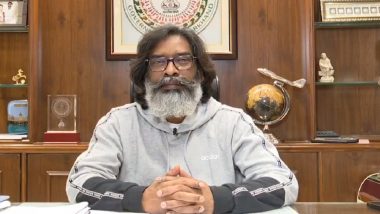
The National Assembly's House Steering Committee holds a meeting to discuss the 2025 budget plan for the presidential office, Thursday. Yonhap Constitutional deadline for budget passage is Dec. 2 By Kwak Yeon-soo The ruling and main opposition parties are wrangling over the government's spending plan for next year as the National Assembly begins deliberations on the 2025 budget, which totals 677.
4 trillion won ($490.7 billion), a 3.2 percent increase from the previous year.
The conservative ruling People Power Party (PPP) has been advocating to sustain a modest growth level regarding expenditures and adhere to a belt-tightening policy while the liberal main opposition Democratic Party of Korea (DPK) backs a cash handout scheme pushed by its party leader Rep. Lee Jae-myung as well as tuition-free high school education. With the DPK holding a majority of seats in the National Assembly, it threatened to cut special activity expenses for the presidential office, police and prosecution.
These discretionary funds are used by government agencies for activities such as intelligence operations and investigations. The opposition also vowed to cut funding for initiatives associated with President Yoon Suk Yeol and first lady Kim Keon Hee. On Saturday, the DPK and its supporters held a massive rally in central Seoul to urge Yoon to accept a special counsel bill to investigate allegations involving the first lady.
The subcommittees of the National Assembly's Special Committee on Budget and Accounts are currently reviewing the proposed national budget. While the constitutional deadline for passage is Dec. 2, differing perspectives between the two main rival parties suggest that clashes are inevitable during the review process.
Experts said partisan conflict over the 2025 budget is expected to intensify as the opposition is going all out to protect its party leader Lee, who received a one-year suspended prison sentence for violating the nation's election law and faces another sentencing hearing on a charge of suborning perjury on Monday. “The annual budget review is always aimed at pressuring the government. I’m not sure if the DPK’s attempt to cut the special activities fund for the prosecution holds a sign of warning or opposition.
But they won’t try to pressure the judiciary because Lee faces a string of criminal cases. The DPK is probably going hard on the PPP, but it will concede to remove contentious measures before the budget's passage,” said Shin Yul, a professor of political science at Myongji University. Meanwhile, the PPP criticized the DPK for its unilateral budget review, saying it is a "bulletproof" measure for Rep.
Lee. Rep. Lee Jae-myung, leader of the main opposition Democratic Party of Korea (DPK), attends a plenary session of the National Assembly in Seoul, Nov.
14. Yonhap The ruling party stated that the DPK cut the budget for next-generation nuclear reactors by 90 percent and reduced funding for major bio and medical research and development. On the other hand, about 2 trillion won was allocated to the cash handouts proposal, a scheme the government slams as an unconstitutional and populist move that would fuel inflation.
“In addition to the budget allocated for special activities of the presidential office, police and the prosecution, the budget for North Korean human rights was also drastically reduced over fears it would create stronger hatred toward North Korea,” Ho Jun-seok, spokesperson for the ruling People Power Party (PPP), said in a statement. “The ruling and opposition parties must cooperate for the sake of people’s livelihoods based on national interests instead of partisan politics.” If the parties fail to meet the Dec.
2 deadline with negotiations prolonged beyond the Jan. 1 start of the fiscal year, the government would have to devise a provisional budget that can be used only for mandatory expenditures as stipulated by law..










